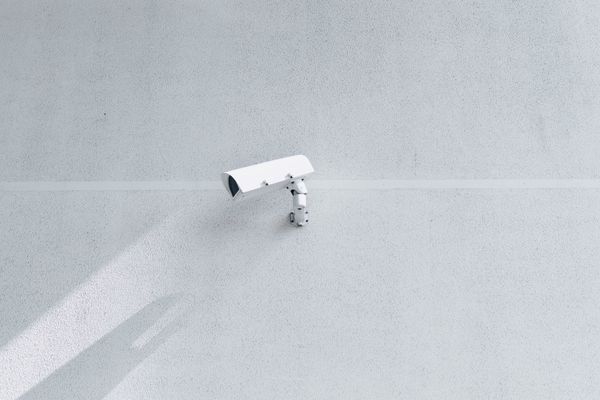
Beyond the Frontier
I almost can’t remember a time when I wasn’t aware of the work the Electronic Frontier Foundation was doing on behalf of all of us who care about the impact technology has on society and culture. They describe their work as protecting digital privacy, free speech, and innovation, but I always saw EFF as an organization that existed because our laws, policies, and cultural practices were all created from a set of assumptions that were radically changed by the ubiquity of computing technology. They’re accelerating the rate at which our institutions adapt to the modern world while protecting our rights.
So I’m really honored today to get the chance to join the board of the EFF, and I hope I can be of service to the organization, its members, its workers, and its mission. And I thought the best way to celebrate the spirit of how EFF protects free expression would be by talking about how one of their most famous efforts was incredibly fraught and contentious for me and the communities I’m part of.
Naturally, this had to do with Prince.
Let’s Go Crazy
Back in 2007, Stephanie Lenz posted a short clip of her toddler dancing while Prince’s “Let’s Go Crazy” played in the background. Not long before, Prince had begun pushing for Universal (which then represented Prince’s interests for the copyright of his song) to remove any use of his music in social media platforms, and so they issued a takedown request to YouTube. Hijinks ensued, and by a decade later, it had become a Supreme Court case.
Now legally, the case seems pretty straightforward to me as a lay person; it’s clearly fair use to have a couple seconds of a song in the background of a video of your kid. But the conversation rapidly shifted into the context of when corporations can send takedown notices to each other and what constitutes legitimate action there.
But truthfully? I don’t care about companies sending each other requests. I care about individual creators making culture and expressing themselves. I want Stephanie Lenz to be able to share a video of her kid.
As the same time, as I watched Prince fight for ownership and control over his work for decades, I learned from him and so many others about the history of exploitation of artists, especially Black artists. It seems eminently reasonable that he should have had a mechanism for saying “I don’t want 2 do business with YouTube and Google in a manner where they can exploit my work unless I have a say in the terms.” Any relationship where a trillion dollar company can use a person’s creation without them having any ability to negotiate payment or decline to participate isn’t protecting expression either.
That’s how we’ve ended up in a situation where copyright trolling seemed like the most effective way to shift the balance of power toward a creator who wanted control over their own work. And it’s a perfect example of how our intellectual property framework still needs to evolve much more. So why would I join the board of an organization that bestowed the Raspberry Beret Lifetime Aggrievement Award to Prince? Because examples like this show that there's so much important work to be done, looking beyond the individual participants in one lawsuit to challenge systems that lead to denying people their rights.
Thinking Bigger
Debates over a song in a home video are small potatoes compared to what’s at stake today, though. Digital surveillance and data exploitation follow the same pattern as these behaviors in the physical world: they victimize the most vulnerable more profoundly. The very institutions of civil society and fundamental human rights are being threatened, in the United States and around the world. Though the stakes are much, much higher, the the reasons are similar to why we end up with absurd copyright cases: our systems aren’t designed toward accountability for institutions and empowerment for individuals. Our laws and regulations aren’t centered in the needs of the most marginalized and vulnerable people.
Few organizations have a long track record of fighting for these fundamental rights. And as I’ve made clear here, that hasn’t always meant I’ve agreed with EFF on every issue. But over decades of work, they’ve been a force for good, standing up when so few institutions do. Just yesterday, an effort they spearheaded made a tool we all use every day default to more secure, more trustworthy communications for everyone, by default. From protecting protestors who want to exercise their right to organize, to pressuring tech companies to be responsible with the data they provide on users, to fighting for access and connectivity for all, pushing to defend our digital rights is a fundamental part of defending our human rights.
These are the efforts what will make our technology platforms accountable to the people they serve. These are the efforts that will rein in the worst abuses our governments try to inflict upon the vulnerable by exploiting technology. I’m excited to, in my own small way, help in that effort. And I hope you’ll join EFF as a member and help with this work, too.